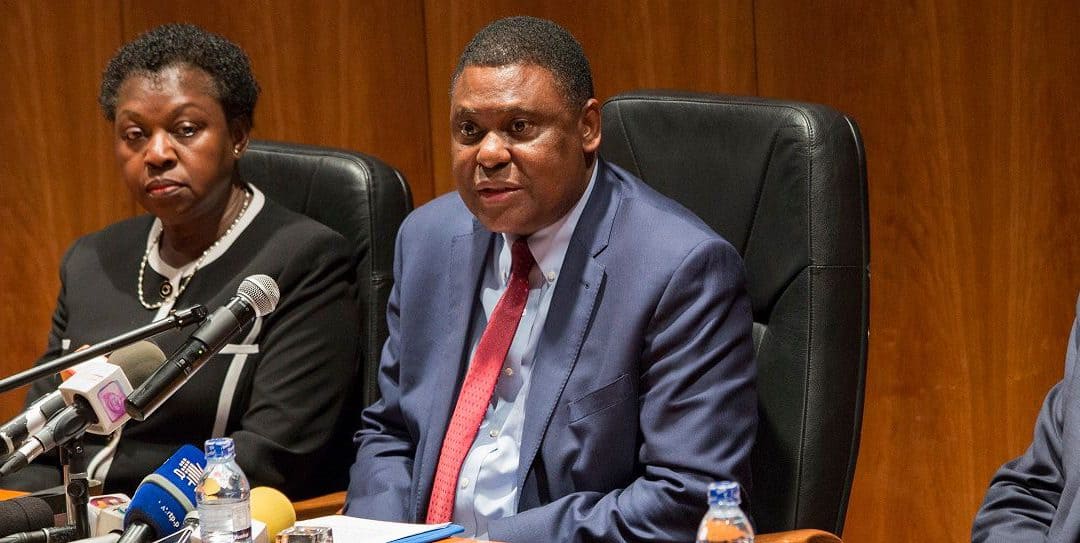
The Ghost Loans Case Scandal in Mozambique
An immense case of financial fraud labelled the Ghost Loans Case and classified amongst the greatest corruption cases in sub-Saharan Africa. The unique nature of the case displayed itself as it traversed four continents – Africa, North America, Europe and the Middle East. The Ghost Loans Case as it was unanimously known played a vital role, whereby it made western financial institutions liable in the corruption of African political elite.
ESSENTIAL STAKEHOLDERS
Key stakeholders include Manuel Chang the former minister of finance. He signed off on loans on behalf of the state government. The previous Credit Suisse Bank Group employees i.e. Andrew Pearse, Surjan Singh and Detelina Subeva. VTB Capital Bank from Russia which financed Mozambique Assets Management Company. U.S government investigated and issued an arrest warrant for Manuel Chang’s involvement in the financial fraud case. The Mozambique government indicted him on charges of money laundering, swindling and abuse of power in relation to the case. Finally, the South African government arrested and detained Manuel Chang whose extradition verdict lay within the Justice and Correctional Services Minister Ronald Lamola.
BACKGROUND
Mozambican senior officials and executive employees from Credit Suisse and Russia’s VTB Capital Bank collaborated to orchestrate this fraudulent scheme that involved $2 billion. The senior Mozambican officials amongst them, former Minister of finance Manuel Chang used three crucial state-owned companies and diverted at least $200 million in the form of kickbacks and bribes in 2013. The companies that received the loans included Ematum (fishing company), Proindicus (maritime security firm) and Mozambique Assets Management. However public suspicion arose upon discovery that the state did not guarantee the loans repayment. This automatically compelled the state to pay back the loans secured. Therefore, the Mozambican public debt increased to a total worth $1.4 billion.
This discovery was made during the International Monetary Fund’s assistance program to the country. The IMF and international donors proceeded to freeze loans and suspended much needed aid to Mozambique. Subsequently, that secret loan led the coastal nation to suffer a debt crisis so severe it has deprived citizens of the most essential services like road maintenance and maintained hospitals. In December 2018, South African Police acted on an international arrest warrant issued by the U.S and arrested Manuel Chang. Meanwhile British authorities arrested three former Credit Suisse bankers: Andrew Pearse, Surjan Singh and Detelina Subeva. The charges brought against them involved creation of maritime proxy projects as a means to raise money for self -enrichment. They also diverted portions of the loan proceeds that acted as payment in the form of bribes and kickbacks to themselves and senior government officials.
Current Status of the Case
After the arrests, the U.S. and Mozambique both issued competing extradition requests for Chang in 2019. However, subsequent changes such as the newly appointed South African Justice Minister Ronald Lamola who decided to reverse the initial verdict led to a stalemate in the case. Mozambique issued, pending appeal, an immediate extradition of Chang. As it stands, Manuel Chang is still held in custody in South Africa awaiting the final verdict to be given by the Justice Minister declaring which state he will be extradited to.
Strengths
The former Credit Suisse Bank group employees pleaded guilty and admitted to the charges. The case exposed a number of political elites involved in helping Manuel Chang carry out the operation in 2013. Additionally, following the withdrawal of Mozambique extradition appeal, The South Africa Justice Minister Ronald is now left with more latitude to review the case on the basis of upcoming developments.
Critiques
Credit Suisse Bank denied any involvement in the fraud case. They insisted that the 3 former employees proceeded to default the banks’ internal controls and sought to conceal their actions. Court proceedings affected by the absence of Manuel Chang in Mozambique. Whereby the government claims that Chang has cases to answer in Mozambique and has initiated court proceedings comprising of defendants in Manuel’s case. Even so his continued absence compromises court proceedings and much needed clarity on facts.
Furthermore, the South Africa Justice Minister Ronald Lamola delayed giving an appropriate verdict on the case. This is due to contention within President Ramaphosa’s government, as two conflicting factions have vested interests in the case. To begin with, Justice Minister Ronald Lamola is leading a “rule of law” faction which wants to send Chang to the US to face corruption and fraud charges. However, another hard line faction with close ties to the FRELIMO ruling party in Mozambique continued to push for his extradition to Mozambique so as to conserve friendly relations with its neighboring state. This created a dilemma for President Ramaphosa to choose between approving a legally robust decision and following the Justice Minister’s lead or opting for the politically expedient choice to send Chang back to Mozambique.
Conclusion
This case displayed the reality that only through relentless pursuits and substantial political will, can the decay of corruption be truly eliminated. The U.S government demonstrated this by being the first to issue an indictment as well as an international arrest warrant for Manuel Chang that led to his arrest in South Africa. In addition, the competing extradition appeals from both the U.S.A and Mozambique indicated the urgency of both states to ensure justice is pursued. Consequently, this will help to prove whether the verdict will be made in order to uphold integrity and the rule of law or will political expediency hold more pre-eminence at the end of the day. Indeed, the ball is now in the South African Court.
Anita Mugo (Kenya) is a member of the 2021 cohort of the Future Africa Fellowship

Recent Comments